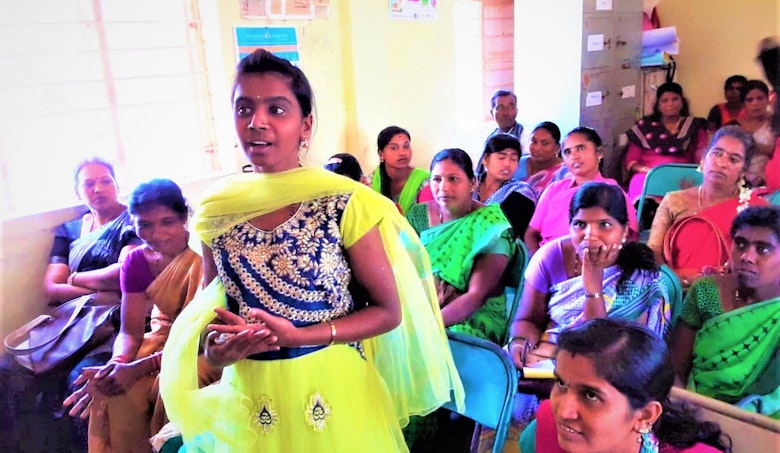Triumph of a Early Married Girl
Child marriage is a growing problem in India. About 27% of girls in the country are married before they turn 18-years-old. With the COVID-19 pandemic, these numbers are rising due to families no longer being able to provide for their daughters. Since 2018, Terre des Hommes Netherlands has been implementing the Initiatives Married Adolescent Girls Empowerment (IMAGE) programme to raise awareness, prevent more girls from getting married, and support those that were already married at an early age.
For Deepa, her experiences had been filled with difficulties as an early married girl. She was married when was only 14, with the immediate pressure from her family-in-law to get pregnant. Unable to bear the harassment, Deepa gave into the decision to conceive. Due to her lack of nutrition and well-being, her pregnancy was a miscarriage. Sadly, she experienced the same faith a few months later with the immediate pressure from her in-laws and her worsening health.
Recovery & Support
While the IMAGE programme was initiated in her community, staff learned her situation and registered her. However, she was not permitted to attend activities due to her husband and in-laws fears of her situation being known to the police. Despite being a common practice, early marriage is illegal in India. It took nearly one month for the staff to convince Deepa’s husband and in-laws after seeing the programme activities.
Deepa was given awareness on sexual and reproductive health and rights; maternity and child health; the need to postpone pregnancy until 21-years-old; child rights; and gender based violence.
The IMAGE staff identified Deepa’s physical weakness during a home visit and as she was suffering from severe stomach pain, she was admitted in a hospital. She was hospitalised for three days and the hospital expenses were met by the programme who also purchased the medicines for her. The team also provided her with vitamin supplements and nutrition tonics. Regular follow up was done to ensure proper intake of her supplementary nutrition.
Apart from her physical health issues, the family’s pressure of having a child soon after marriage made her fall into depression. As a result, intense counselling to Deepa’s in-laws and husband were given. Awareness sessions were given in their community and this convinced Deepa’s husband and in-laws not to push Deepa into pregnancy. Now, Deepa and her husband have decided to postpone their pregnancy until she is 21-years-old. She is currently 18-years-old.
Deepa was given training in designing and tailoring traditional dresses, and basic computer skills. Through designing dresses, Deepa is able to earn around 1000 rupees every month. She was assisted in the opening of a bank account in her name. All of this support helped increase her confidence and improve her mental state.
During the COVID 19 lockdown, dry ration, masks and sanitizers were also given to Deepa and her family.
A Brighter Future
In the future, Deepa wants to support her husband’s plantain business. She has applied for financial help from the TdH-NL’s Revolving Fund. Furthermore, the field staff regulars follow up on her health.
Before she got married, Deepa was regularly in school. She plans to continue it again, “I want to study and write the Pre University Course (PUC) Examination as a private candidate. I would like to improve my educational qualification and with my working knowledge in computers, I hope to get a good job. I want to educate my children so that they will have a happy and prosperous life”.
After experiencing early child marriage first-hand, Deepa is motivated to create a better community, “It is my dream that there will be zero percent child marriage in my village, that all children will have a good environment to grow and develop their potential. I will contribute to the safeguarding of children”.

